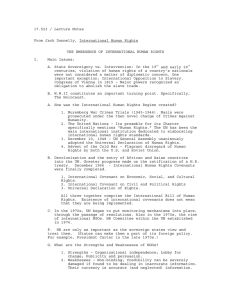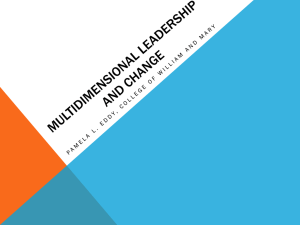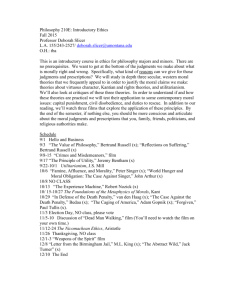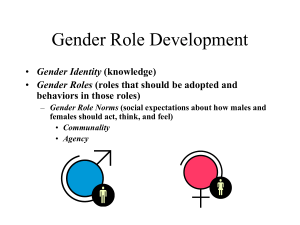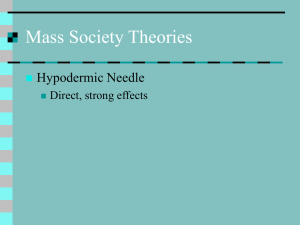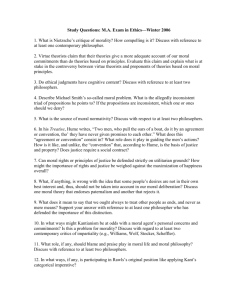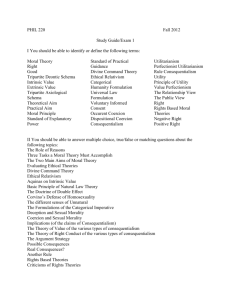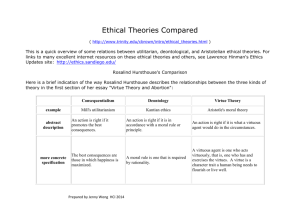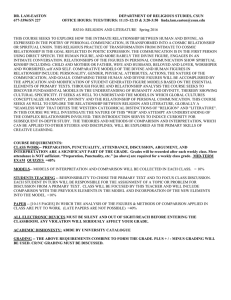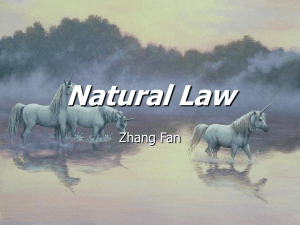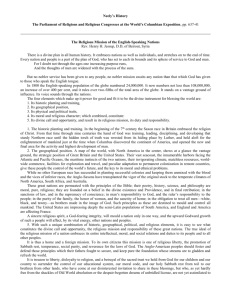Natural Law
advertisement
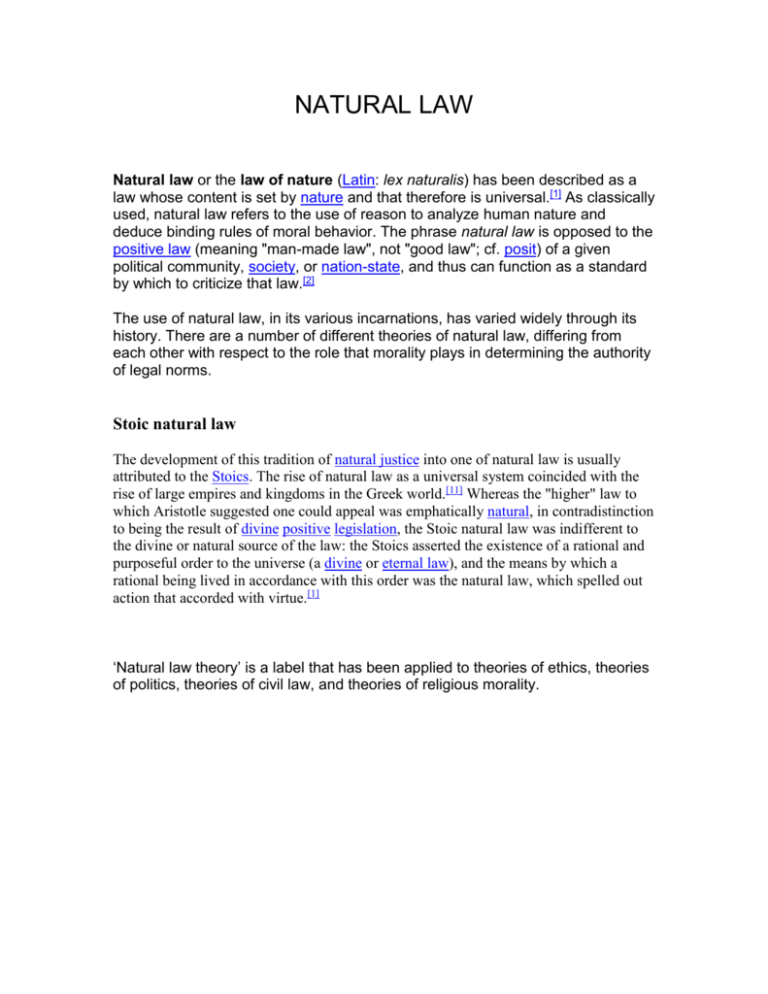
NATURAL LAW Natural law or the law of nature (Latin: lex naturalis) has been described as a law whose content is set by nature and that therefore is universal.[1] As classically used, natural law refers to the use of reason to analyze human nature and deduce binding rules of moral behavior. The phrase natural law is opposed to the positive law (meaning "man-made law", not "good law"; cf. posit) of a given political community, society, or nation-state, and thus can function as a standard by which to criticize that law.[2] The use of natural law, in its various incarnations, has varied widely through its history. There are a number of different theories of natural law, differing from each other with respect to the role that morality plays in determining the authority of legal norms. Stoic natural law The development of this tradition of natural justice into one of natural law is usually attributed to the Stoics. The rise of natural law as a universal system coincided with the rise of large empires and kingdoms in the Greek world.[11] Whereas the "higher" law to which Aristotle suggested one could appeal was emphatically natural, in contradistinction to being the result of divine positive legislation, the Stoic natural law was indifferent to the divine or natural source of the law: the Stoics asserted the existence of a rational and purposeful order to the universe (a divine or eternal law), and the means by which a rational being lived in accordance with this order was the natural law, which spelled out action that accorded with virtue.[1] ‘Natural law theory’ is a label that has been applied to theories of ethics, theories of politics, theories of civil law, and theories of religious morality. The term “natural law” is ambiguous. It refers to a type of moral theory, as well as to a type of legal theory, but the core claims of the two kinds of theory are logically independent. It does not refer to the laws of nature, the laws that science aims to describe. According to natural law moral theory, the moral standards that govern human behavior are, in some sense, objectively derived from the nature of human beings and the nature of the world. While being logically independent of natural law legal theory, the two theories intersect. natural law, in philosophy, a system of right or justice held to be common to all humans and derived from nature rather than from the rules of society, or positive law. There have been several disagreements over the meaning of natural law and its relation to positive law. Aristotle (384–322 bce) held that what was “just by nature” was not always the same as what was “just by law,” that there was a natural justice valid everywhere with the same force and “not existing by people’s thinking this or that,”

